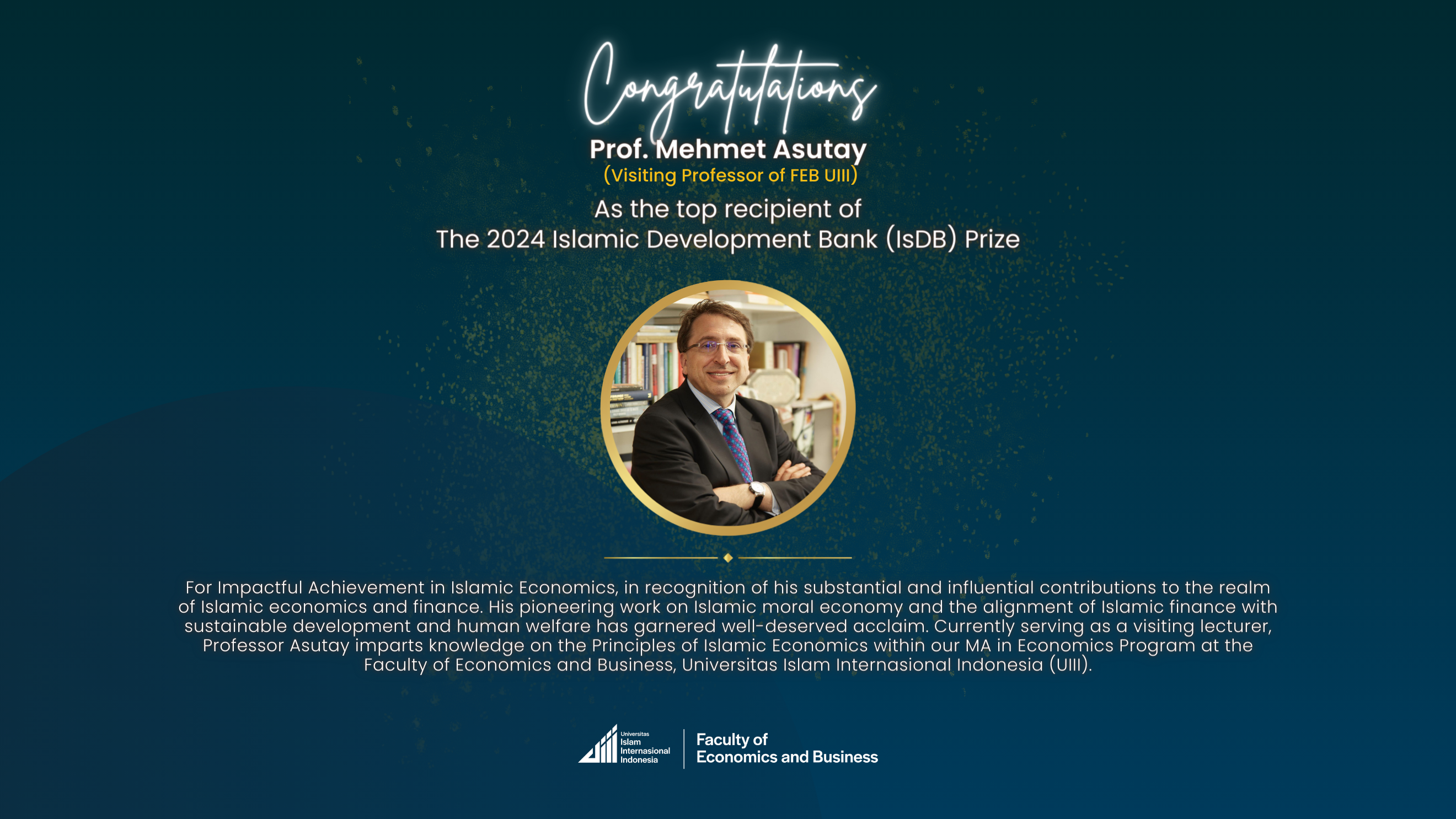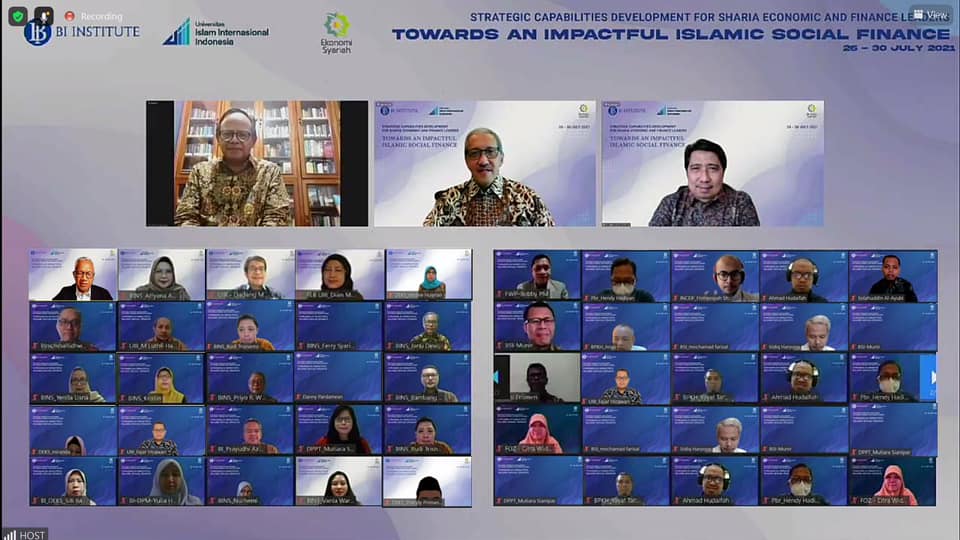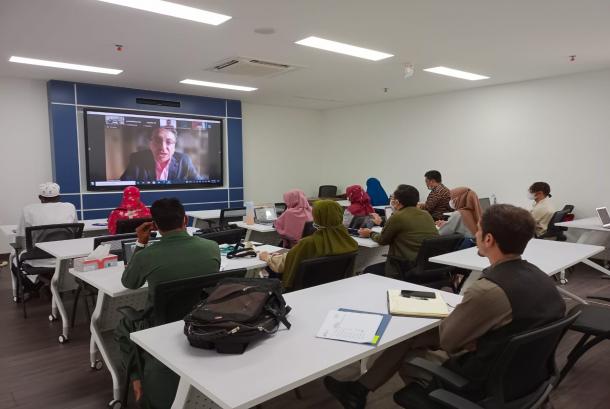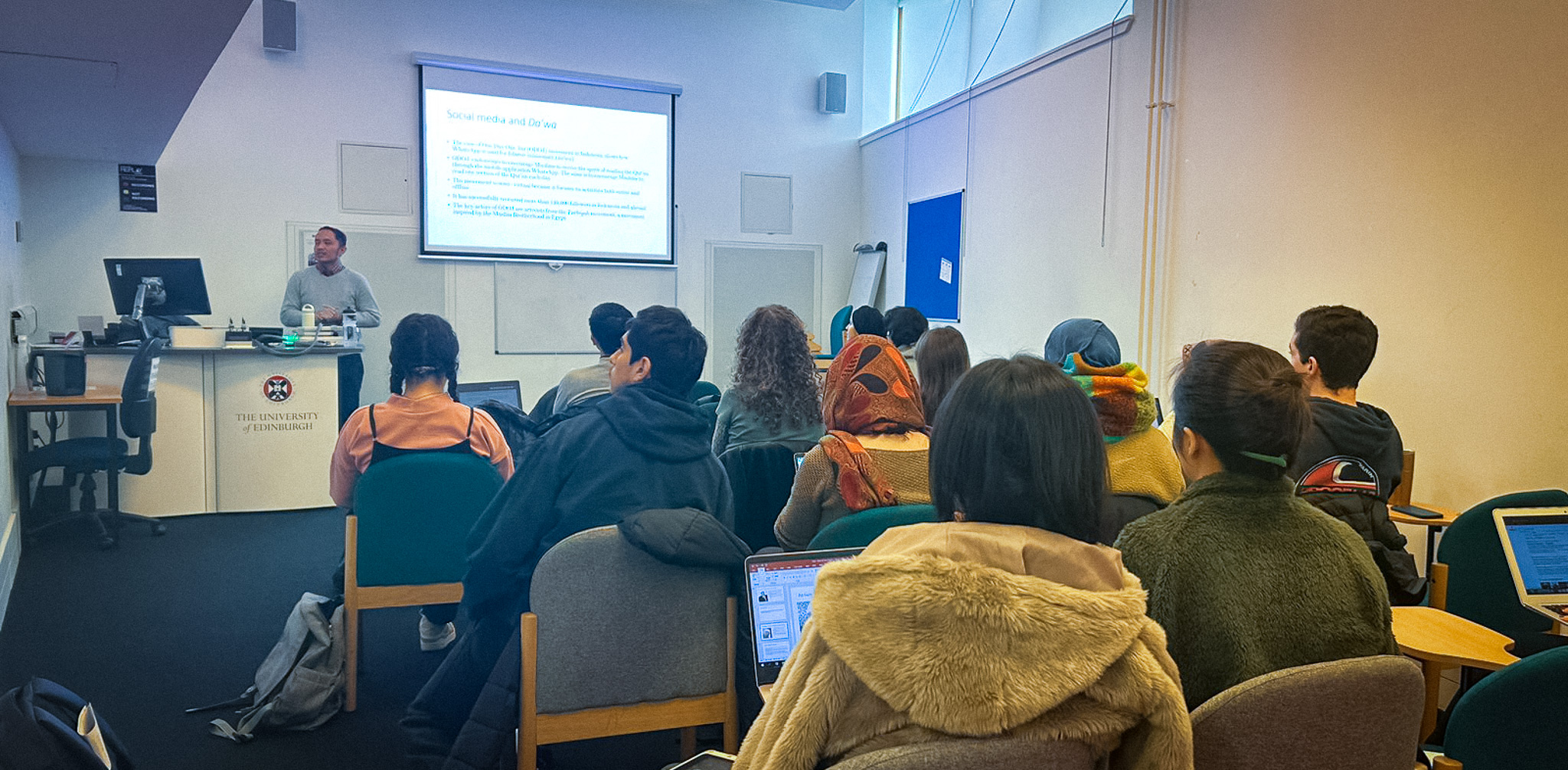UIII Visiting Professor, Prof. Mehmet Asutay, Won an IsDB Impactful Achievement
April 24, 2024Contributor: Achmad Jatnika | Editor: M. Luthfi Hamidi, Ph.D

Prof. Mehmet Asutay, a visiting professor at the Faculty of Economics and Business, has been named the first recipient of the 2024 Islamic Development Bank (IsDB) Prize for Impactful Achievement in Islamic Economics in recognition of his significant and influential contributions to Islamic economics and finance.
Professor Asutay was chosen for his novel work on Islamic moral economy and the articulation of Islamic finance to promote sustainable development and human welfare.
His selection for the prize is based on three factors. Firstly, his work highlights the importance of reconstructing Islamic economics as an Islamic moral economy, which calls for the establishment of an extended stakeholder-based governance structure to uphold the moral foundation of the economic system.
Second, Prof. Asutay's multidisciplinary research focuses on how Islamic finance may be used to promote sustainable development and human well-being. The committee also noted that his empirical research corresponds to and articulates the conceptual and theoretical reconstructions he aims for in his study.
Finally, Prof. Asutay's original concepts have significant policy consequences for IsDB member nations and Muslim populations throughout the world.
For these considerations, the IsDB Prize Selection Committee chose Prof. Asutay to award the IsDB Prize for Impactful Achievement in Islamic Economics, Knowledge Contribution Category 2024.
Prof. Asutay has been a visiting professor at UIII since 2022, where he teaches Principles of Islamic Economics for the MA in Economics program in the Faculty of Economics and Business.
Notably, two years prior, this prestigious award was bestowed upon Professor Habib Ahmed, who currently also serves as our visiting professor, specializing in Islamic banking and finance. Professor Habib Ahmed's research highlights the potential of the Islamic financial sector to drive economic development. He emphasizes the importance of a suitable legal and regulatory framework for this sector to flourish. Furthermore, his work explores how these efforts can contribute to infrastructure development, which in turn could foster the growth of Islamic social finance and promote financial inclusion.
- UIII and Yunus Emre Institute Established a Partnership
- UIII and UIN SU Establish a Partnership
- The Burtonian: The Forgotten Australia Asia-centric Foreign Policy
- Bahrain Promotes UIII to Gulf Countries
- UIII Admissions 2024/2025 Info Sessions Link
- Against the Mainstream: Reflecting on Andina Dwifatma's "Cadar Garis Lucu"
- Kick Andy Goes to UIII with H.E. Retno Marsudi
- DPR RI is Keen to Support UIII to Continue to Grow
- UIII Student Discusses Digital Sufism at Yogyakarta Conference
- UIII Student Successfully Leads Mandalika National English Olympiad in Mataram


